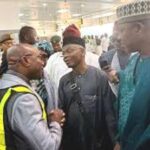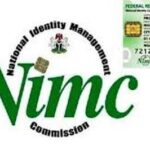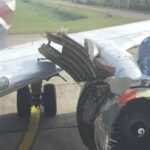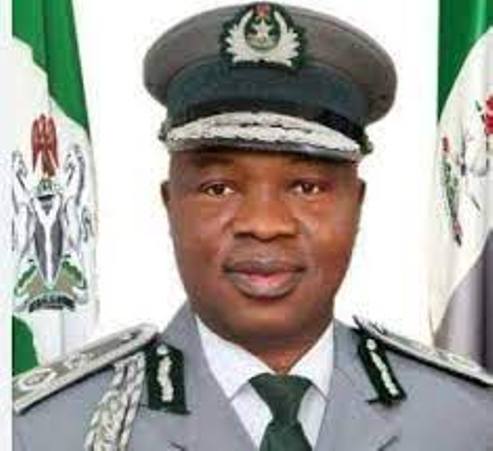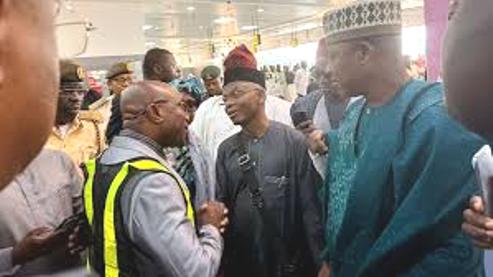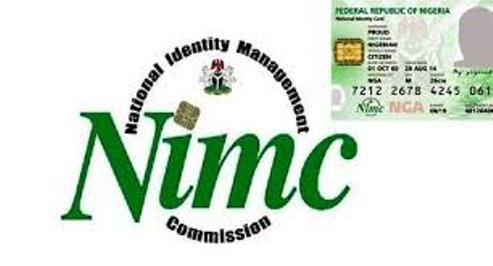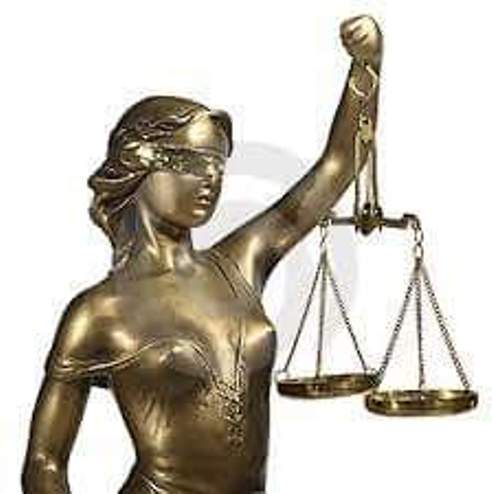
LAGOS SEPTEMBER 9TH (NEWSRANGERS)- Between Monday and Friday this week, the Presidential Election Petition Tribunal must hand down its verdict in the suit filed by the Peoples Democratic Party (PDP) and its presidential candidate, Atiku Abubakar, on the outcome of the February 23 presidential election. Although the tribunal did not give a specific date for judgment when it adjourned after listening to parties submit their final written address, it must nevertheless, deliver the much-awaited judgment before the expiration of the statutory 180-day period stipulated by law.
According to the provision of the Electoral Act, the petition must be heard and final judgment delivered within 180 days of filing it, which in this case, is September 13. Any moment beyond the stipulated time renders the petition incompetent and of no probate value to the petitioner. Thus, the Justice Lawan Garba-led Tribunal must deliver judgment on the petition on or before Friday, September 13, the petition having been filed on March 8. No doubt, the issue has generated intense speculation among Nigerians and members of the international community, considering the level of allegations made by the petitioners, as well as the counter-evidence given by the respondents in the course of the proceedings.
Atiku and PDP had predicated their petitions on the fact that the number declared by INEC was altered and contradicted the actual number of votes captured in the central server in favor of the All Progressives Congress (APC) and consequently, urged the tribunal to compel the electoral umpire to make available, the central server, where votes were electronically transferred. This request was, however, dismissed by the Tribunal on the technical ground that hearing it will amount to the main subject matter of the petition.
They also alleged that Buhari lied on oath when he claimed that he had three certificates but could not produce even a photocopy to support his Form CF 001, submitted to Independent National Electoral Commission (INEC) during clearance. Atiku and PDP had also alleged irregularities, including intimidation of electorate as well as alteration of election results during and after the election, respectively.
During the hearing of the petition, Atiku called 62 witnesses out of the 400 initially penciled. On the other hand, Buhari called six. However, both INEC and APC did not call any witness. Counsel to INEC, Yunus Usman (SAN), told the tribunal that it was not necessary to call witnesses, having extracted useful information from evidence given by the petitioners’ witnesses. But INEC’s lawyer debunked the use of the electronic devices in the conduct of the election.
Atiku, through his team of lawyers led by Livy Uzoukwu, in addition to calling 62 witnesses, also tendered some documents, including Form CF 001, where President Muhammadu Buhari supplied his personal information to INEC for clearance to enable him to stand for the February 23 Presidential election. In the said Form CF 001, President Buhari claimed that he has three certificates, including Primary School Leaving Certificate, West African School Certificate, as well as the Cadet Officer Certificate, none of which he attached a photocopy.
His explanation, however, was that in 1962 when he joined the Nigerian Army, he and his colleagues were ordered to submit all their certificates to the Nigerian Army Board. Recall that the Secretary, Nigerian Army Board had in 2015, addressed a World Press Conference and debunked the claim that the Board collected certificates belonging to those who joined the Army in 1962. He specifically stated that there was no single document in the personnel file of Major General Muhammadu Buhari. The position of the Nigerian Army Board was corroborated by Major General Paul Tarfa (Rtd), who joined the Army the same day with Buhari. Buhari had called Tarfa as his witness No. 1 in his defence on the petition brought against him by Atiku and PDP.
However, during cross-examination by INEC lawyer, Yunus Usman (SAN), General Tarfa told the Tribunal that in 1962 when he joined the army with Buhari, they were never asked to drop their certificates. He further told the tribunal that they never dropped their certificates with the Army Board. There was also another revelation by the current Chief of Staff to President Buhari, Alhaji Abba Kyari, who claimed to have known the President for over 40 years. He told the Tribunal that he personally received Buhari’s Cambridge WASC Certificate on July 18 this year. The witness further admitted that his boss listed the schools he attended but failed to list the certificates obtained from them.
But there was another respondent’s witness who maintained that President Buhari didn’t lie about his certificates. In fact, Sule MaiAdua, a retired civil servant disclosed that he attended the same secondary school with Buhari and that he even took photographs with him while they were in class six. And for Buhari’s lawyer, Chief Wale Olanipekun (SAN), that evidence cleared the doubt over his client’s certificate controversies. “After all, no law stipulated presentation of certificates as a prerequisite for the qualification to contest election for the office of the president,” he said in court.
However, the only puzzle that remained unresolved by the respondents was why President Buhari bore different names in different certificates. In the Cambridge Assessment Report, he bore Mohammed Buhari, whereas, in another certificate, he bore Muhammadu Buhari. Also, in the two assessment papers brought by Buhari, he was said to have sat for eight subjects in one and six subjects in the other.
On the issue of voter intimidation and alteration of results, which some of the petitioners’ witnesses testified to, the respondents countered the allegations on the ground that most of the allegations were hearsay since they could not be in more than one centre at the time. The petitioners closed their case with their star witness, former Corp Marshal, Federal Road Safety Corps (FRSC) and Minister of Aviation, Chief Osita Chidoka. Chidoka was brought to expose all he knew about INEC central server. The contention was that Buhari’s 15,191,847 votes against Atiku’s 11,262,978 were the making of INEC.
So, as the National Collation Agent and Head of PDP Situation Room for the February 23 election, Chidoka told the Tribunal that INEC Chairman, Mahmoud Yakubu, had consistently told them at various times that a server would be used for the purpose of electronic transmission of results, even though results were collated manually at the ward level. He wondered why the Commission could spend N27b on Information Technology, only to tell Nigerians that it did not deploy server for the purpose of electronic transmission of election results. However, upon cross-examination he admitted that he was not at any polling unit when results were transmitted electronically.
With their submissions, Atiku and PDP believe that they have made a solid case that cannot be easily wished away. They also perceive the inability of INEC and APC to call witnesses as a sign of failure. “As a party, we have made a solid case before the panel. Our candidate, Atiku had also presented his case supported by credible evidence. We have presented incontrovertible evidence to show that our mandate was stolen,” stated PDP spokesman, Mr. Kola Ologbodiyan. With this, they consequently urged the court to determine the case on the ground of its substance, not technicalities.
The judiciary on its own is not leaving any room to speculations. Recall that on inauguration of the panel, it was chaired by the President, Court of Appeal, Justice Zainab Bulkwachua. But Atiku and PDP opposed her inclusion in the Tribunal on the ground that her current husband, Adamu Bulkwachua, is a serving Senator from Bauchi on the platform of APC, and that her biological son was also a governorship aspirant in Gombe State under APC.
With this, the petitioners felt that her family has a deep interest in APC and could lead to political bias or favoritism. Consequently, Bulkwachua stepped down, prompting the appointment of Justice Garba as the new head of the tribunal. As Nigerians anxiously await the verdict, many questions are asked. “if the case goes in favor of Atiku, does the tribunal have the authority to sack a sitting president? if it favors the President, is Atiku likely to spring any surprise? Whichever way the pendulum swings, Nigerians and the world will be watching.
Meanwhile, the APC, yesterday, expressed optimism that the Tribunal would uphold President Buhari’s victory. APC’s National vice-chairman South-south, Prince Hilliard Eta maintained that the outcome of the presidential poll won by President Buhari was a true reflection of the wishes of the majority of the electorate in the country.
He noted: “Their case was built on nothing as far as the law is concerned. We have no fear or any form of apprehension about the outcome of the judgment of the Tribunal at all. The PDP case was predicated on the use of the INEC server, which is alien to the Electoral Act. We have successfully defended the mandate freely given by Nigerians to our party and to President Buhari.” He argued that salient issues raised by the opposition PDP and its presidential candidate Atiku relating to the legality of the use of the server had already been resolved in favor of the APC and Buhari.
Huhuonline
Why Presidential Election Tribunal Must Deliver Verdict Within This Week



